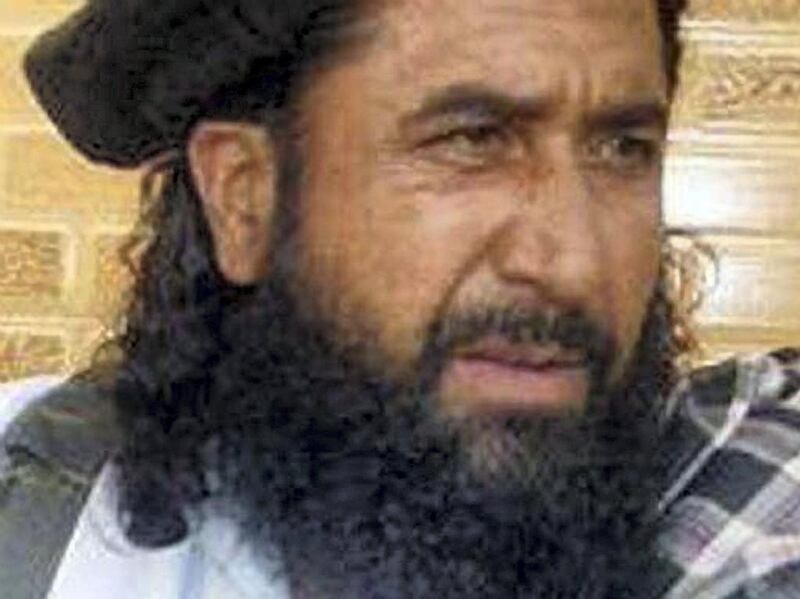A senior Taliban leader once touted as a potential peacemaker has been released from detention in Pakistan after high-level negotiations.
Mullah Abdul Ghani Baradar was the Taliban's number two and ran their insurgency until he was seized in a joint raid by the CIA and Pakistani intelligence officers in 2010.
The experienced militant leader has in the past been portrayed by Afghan and western officials as potentially open to negotiation, raising speculation that his release is linked to US efforts to launch peace talks.
"Yes, it is formally confirmed that Mullah Baradar has been released," Taliban spokesman Zabiullah Mujahid told The National.
Pakistan has not publicly commented on Mullah Baradar's release but Pakistani intelligence officials told Associated Press he was freed after high-level discussions.
It was not immediately clear where Mullah Baradar had been released to, or what condition he was in. “I have no further details,” said Mujahid.
Mullah Baradar was one of the movement's most experienced commanders when he was seized in a raid in Karachi in February 2010.
A close associate and friend of the Taliban founder Mullah Omar, the pair fought the Soviets together and Baradar went on to be at the heart of the movement from its earliest days in mid-1990s Kandahar.
By the time of his capture, he was said to be operational leader of the organisation, heading up its leadership council and taking day-to-day control with occasional instruction from the elusive Mullah Omar.
Taliban commanders at the time described him as a pragmatic leader who listened to his men and sought consensus on decisions. He was said to have been instrumental in drawing up guidelines for fighters on how to treat local people under their command as the insurgents waged their own hearts and minds campaign.
At the time his public stance on negotiations was uncompromising. In a rare 2009 interview, he said: “We see no benefit for the country or Islam in such kind of talks.”
Yet in private, he was said to have made contacts with the Afghan government at least once while Hamdi Karzai was president. His tribal links to Mr Karzai and his family, with both being members of the Popalzai group, were said to have led to meetings with the president's brother, Ahmed Wali, just before his arrest.
The Afghan government accused Pakistan's military spy agency, the General Directorate for Inter-Services Intelligence or ISI, of seizing Mullah Baradar to maintain influence over the Taliban and sabotage the nascent talks.
Soon after his arrest, one Pakistan security official told the New York Times: "We picked up Baradar and the others because they were trying to make a deal without us."
______________
Read more:
[ US and GCC states sanction Iran Quds Force members for aiding Taliban ]
[ Afghanistan probes claims at least 14 civilians killed in raid on ISIS ]
[ Wounded but undeterred, Afghan blast survivors return to polling stations ]
______________
The release of Mullah Baradar went on to become a regular demand from the Afghan government. In 2013, the Pakistan government went as far as to officially announce he was to be freed, but he never surfaced.
The Taliban said this week's release was different. “In 2013, the Taliban did not formally confirm his release,” explained Mujahid.
What influence Mullah Baradar retains after eight years away from the movement and now that Mullah Omar is long dead, or what his current stance on negotiations might be, is unclear. The Taliban movement has undergone political upheaval and two changes of leadership since Mullah Baradar was last free and many of the field commanders he oversaw are dead.
Unconfirmed reports said Mullah Baradar was released at the insistence of the Qatari government, who host the Taliban's diplomatic liaison office in Doha.
The Doha office has taken centre stage for recent American efforts to kick start negotiations for a political settlement to the Taliban insurgency.
Senior American officials have twice met a team of Taliban envoys for ice-breaking talks and news of Mullah Baradar's release came days after a visit to Islamabad by the Qatari deputy prime minister and foreign minister, Sheikh Mohammad Bin Abdulrahman Al Thani.
Sources said if Mullah Baradar were to take part in diplomatic efforts, he would probably have to move to Qatar.
America's push to negotiate with its enemy of the past 17 years comes amid increasing frustration from President Donald Trump that his military escalation unveiled last year is bringing little progress. Washington still maintains that Pakistan can do more bringing its influence to bear on the Taliban to persuade them to take part in negotiations. Pakistan says it is fully committed to finding a peaceful settlement.
______________
Beyond the Headlines podcast: Taliban bombings dampen Afghan elections





